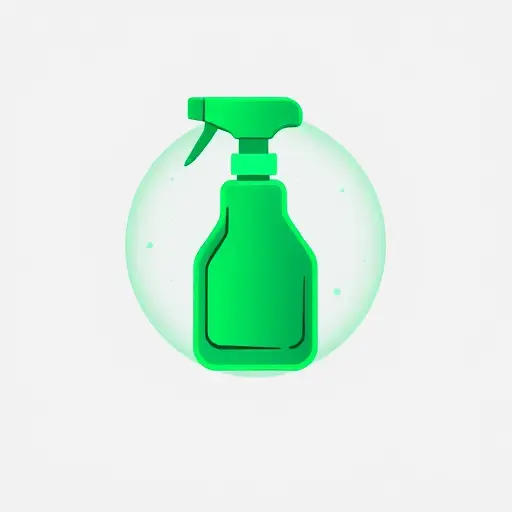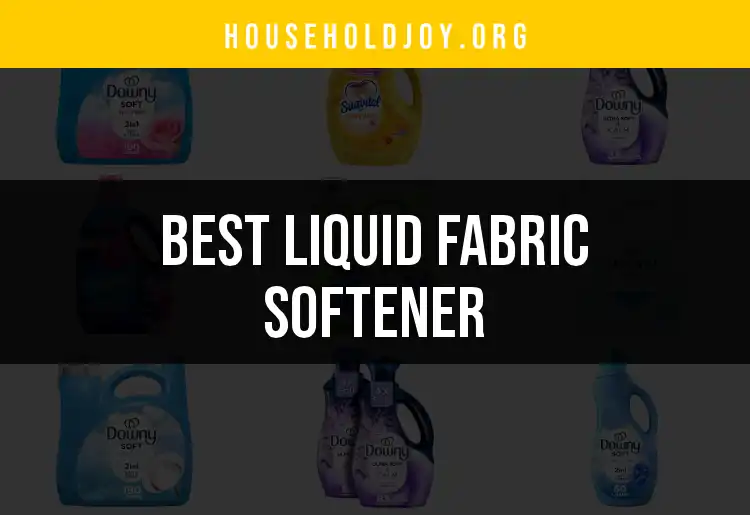Laundry is an essential part of household management, involving more than just tossing clothes into a washing machine and waiting for them to clean. This comprehensive guide aims to cover every facet of laundry, offering insights into the best practices, products, and techniques for keeping your garments in top shape.
Understanding Laundry Basics
Before diving into the nuances of laundry products and methods, it’s crucial to understand the different fabric types and their corresponding washing instructions. Each fabric comes with its own set of care requirements that can greatly affect the longevity and appearance of your clothing.
Types of Fabrics and Washing Instructions
-
Cotton: Known for its durability and versatility, cotton is a popular fabric choice. Understanding how to care for it is essential, as improper washing can result in fading or shrinkage. Cotton can typically be washed in hot or warm water, making it easier to remove stains. However, always check for specific care labels, as blends may require gentler treatment to avoid damage.
-
Linen: This natural fabric is not only breathable and perfect for summer wear but also requires special handling due to its tendency to wrinkle easily. To maintain the integrity of your linen clothing, it’s often best to wash it on the gentle cycle or by hand. Using a suitable detergent for linen sheets is crucial for preserving its unique texture and looks.
-
Synthetic Fabrics: These include materials like polyester and nylon, which tend to be more resilient to wrinkling and stains. Washing synthetic fabrics in cold water helps preserve color and shape, prolonging the life of the garment. Paying attention to fabric care can save you from costly replacements in the long run.
-
Delicates: Fabrics such as silk and lace are more susceptible to wear. Gently washing them either by hand or in a delicate cycle can prevent damage. Investing in a basin for hand washing clothes can provide a dedicated space for cleaning these sensitive items without risking tear or damage.
The Science of Dirty Clothes
Understanding what makes clothes dirty can guide your laundry decisions. Clothes accumulate dirt, sweat, and oils that become embedded within fabric fibers. Different elements require distinct washing techniques to ensure a thorough clean. For instance, protein stains from sweat or food may respond better to enzyme-based detergents, while oil-based stains require specific treatment methods. Addressing stains promptly and treating them before washing can lead to better results, emphasizing how fundamental stain treatment is in maintaining fabric.
Importance of Sorting Laundry
Sorting is an indispensable step in the laundry process that can significantly impact the results. By separating whites from colors and delicates from heavy items, you can prevent bleeding and damage. For instance, washing a red shirt with whites can lead to a pink hue on your light garments, which is often irreversible. A well-organized laundry routine minimizes mishaps, and using laundry bags for laundromat can help manage your loads more effectively when in shared facilities.
Laundry Products Overview
Choosing the right laundry products can significantly simplify your washing routine and enhance the quality of your laundry results. Knowing your options is crucial for making informed decisions that suit your household's needs.
Detergents
Detergents form the backbone of any laundry regimen. Understanding your options can help you make the best choice for your needs.
Liquid vs. Powder Detergents
Liquid detergents dissolve faster and are generally better for cold water washes, making them ideal for stubborn stains like those from grass or ketchup. Conversely, powder detergents are typically more effective for light cleaning and can be more economical in bulk. Selecting the right type can optimize your cleaning process, helping to maintain your clothing's quality over time.
If you prefer more natural options, you might consider exploring our guide on laundry soap not detergent for alternatives that are gentler on both fabrics and the environment. Using specially formulated soaps can limit chemical exposure, making it a safer choice for families with sensitive skin.
Natural vs. Chemical-based Detergents
Natural detergents avoid harsh chemicals and are less likely to irritate sensitive skin, which is particularly important for households with children. For those who depend on septic systems, it’s crucial to select products designed to break down safely in such systems. Read up on the best options available in our article about the best fabric softener for septic tanks, which ensures you are making responsible choices.
Specialty Detergents
If you own a Speed Queen top loader, you should specifically look for options designed for that machinery to avoid any potential problems with detergent residue or excessive sudsing. You can find tailored recommendations for your specific needs in our guide on the best detergent for Speed Queen top loader.
Fabric Softeners
Using fabric softeners can make your laundry feel softer while imparting a pleasant scent. They work by coating the fabric fibers, making them smoother and reducing static cling, which makes your ironing tasks less daunting.
Benefits of Using Fabric Softeners
Beyond making clothes softer, fabric softeners can also decrease drying time by reducing friction, leading to energy savings. However, if you appreciate beautifully scented laundry, explore our guide on the best scented fabric softener to discover options that will leave your garments smelling fresh and inviting.
Choosing a Fabric Softener for Septic Tanks
For households utilizing septic systems, choosing a septic-safe product is a must. Products that do not disrupt the bacteria required for septic systems can avoid costly plumbing issues. In our section on best fabric softener for septic tanks, we outline products that can help you maintain both your laundry routine and your plumbing system.
Chemical-free Alternatives
For those interested in eco-friendly options that minimize synthetic fragrances and artificial ingredients, consider using chemical-free dryer sheets. These products not only help soften laundry but also limit allergic reactions and reduce environmental impact.
Starch Products
Starching can enhance the crispness of fabric, contributing to a sharp appearance in dress shirts and table linens. This is especially important for maintaining a professional look in workplace attire.
The Role of Starch in Laundry
Starch acts almost like a fabric protector by adding a layer that can aid in resisting soil and dirt buildup. Additionally, it helps maintain a clean and pressed appearance for longer, reducing the frequency of washes. If you're exploring starch options, look into our recommendations for best liquid starch and best starch for linen to find suitable products that align with your needs.
Laundry Cleaning Accessories
Investing in the right laundry cleaning accessories can extend the life of your washing machine while keeping your laundry smelling fresh and clean.
Rubber Seal Cleaners for Washing Machines
Regularly cleaning your washing machine’s rubber seals is essential for maintenance. Over time, mold and moisture can accumulate, leading to unpleasant odors. Consider checking our recommendations in best cleaner for washing machine rubber seal to maintain the machine's hygiene and efficiency.
Laundry Techniques
Once you are equipped with the right products, it’s time to apply them effectively. Utilizing proper washing techniques enhances cleaning power while preserving the integrity of your laundry.
Hand Washing
Hand washing is essential for delicates that require a more gentle and cautious approach.
Why and How to Hand Wash Clothes
For sensitive fabrics, hand washing is often the safest option. Using a dedicated basin for hand washing clothes allows for controlled cleaning without risking tears or abrasions. Always use cold water along with a mild detergent designed for delicate fabrics, ensuring that your clothes remain in good condition.
Machine Washing
For your standard laundry loads, machine washing is efficient and can handle larger volumes, but it's vital to follow some key practices.
Load Capacity and Cycle Selection
Make sure not to overload your washing machine, as it can damage both your clothes and the appliance. Choose the right cycle based on the fabric type for optimum results—delicate cycles for fragile items, normal cycles for everyday garments, and heavy-duty cycles for soiled work clothes. Understanding how to read care labels can save you time and effort.
Proper Drying Techniques
To maintain garment quality, consider using an indoor retractable clothesline for those rainy days or specific items that need air-drying. Proper drying not only saves energy but also helps prevent shrinkage and distortion from excessive heat in the dryer.
Dry Cleaning vs. Home Cleaning
Certain fabrics, such as silk or wool, may still require professional dry cleaning services; however, many delicates can also be safely cleaned at home with special care. Understanding which method fits your wardrobe is key for maintaining fabric quality over time.
Dealing with Stains
Addressing stains promptly is paramount in laundry care. Common types include oil, ink, and blood, which may require specific treatments before washing. Having a stain removal kit handy can help you tackle these challenges as they arise, ensuring that clothes remain in pristine condition.
Laundry Storage Solutions
Efficient storage solutions simplify laundry tasks and keep your spaces organized.
Laundry Baskets
Laundry baskets are critical for organizing and transporting your clothes. They should be sturdy enough to handle heavy loads, making it practical to sort laundry as it comes in. Consider exploring options for an eco-friendly non-plastic laundry basket, which not only reduces plastic waste but can also provide a stylish addition to your utility spaces.
Drawer Fresheners
Maintaining freshness in stored clothes can be achieved through the use of drawer fresheners, which help to prevent musty odors and discourage mildew. If you're curious about effective products available, see our guide on best drawer freshener for clothes.
Hanging Solutions
Maximizing space and airflow can improve drying conditions.
Indoor Retractable Clotheslines
Indoor retractable clotheslines are a brilliant solution for air-drying clothes, especially in homes without outdoor space. By checking our recommendations for the best indoor retractable clothesline, you can discover options that cater to your space and needs while allowing you to hang items conveniently.
Outdoor Clotheslines
For those who enjoy the fresh, outdoor scent of sun-dried laundry, a reliable clothesline is invaluable. Assess our tips on selecting the best clothesline rope, as this accessory can securely hold your laundry while withstanding various weather conditions.
Specialty Laundry Needs
Certain households have unique laundry challenges that require specialized solutions to maintain their garments and linens.
Pet Owners
Having pets adds another layer to laundry obligations, as pet hair can be a frustrating issue.
Laundry Solutions for Dog Hair
If you find yourself battling pet hair in your laundry, our guidelines on the best sheets to repel dog hair can help you choose materials that are less prone to accumulating fur, allowing you to keep your living environment clean.
Specialty Rugs and Fabrics
Care for your home textiles, including rugs, is essential to ensure longevity and cleanliness.
Care for Washable Rugs
If you have rugs that can be machine-washed, it's vital to follow proper cleaning instructions. Our recommendations in the article about best 8x10 washable rugs provide options that cater to various backgrounds and can withstand the test of time.
Environmental Considerations
With growing awareness of eco-friendly practices, you might want to explore chemical-free dryer sheets that benefit both your garments and the environment. Without harmful chemicals, you can achieve fresh-smelling laundry while also contributing to a cleaner planet.
Conclusion
Effective laundry management is essential for preserving the quality of your garments while enhancing the overall health of your home. From choosing the appropriate products to employing effective techniques, mastering laundry practices pays dividends in time saved and the prolongation of clothing life. Each choice contributes not just to your laundry routine but also to the environment and your family’s health.
Resources and Further Reading
To deepen your understanding, refer to our glossary of laundry terms, recommended laundry tutorials, and links to related products. The right knowledge ensures a successful laundry experience, transforming a mundane task into an effortless process while at the same time promoting sustainable practices. With well-informed choices, you can enhance your laundry game and enjoy the satisfaction that comes from expertly managed laundry.

















